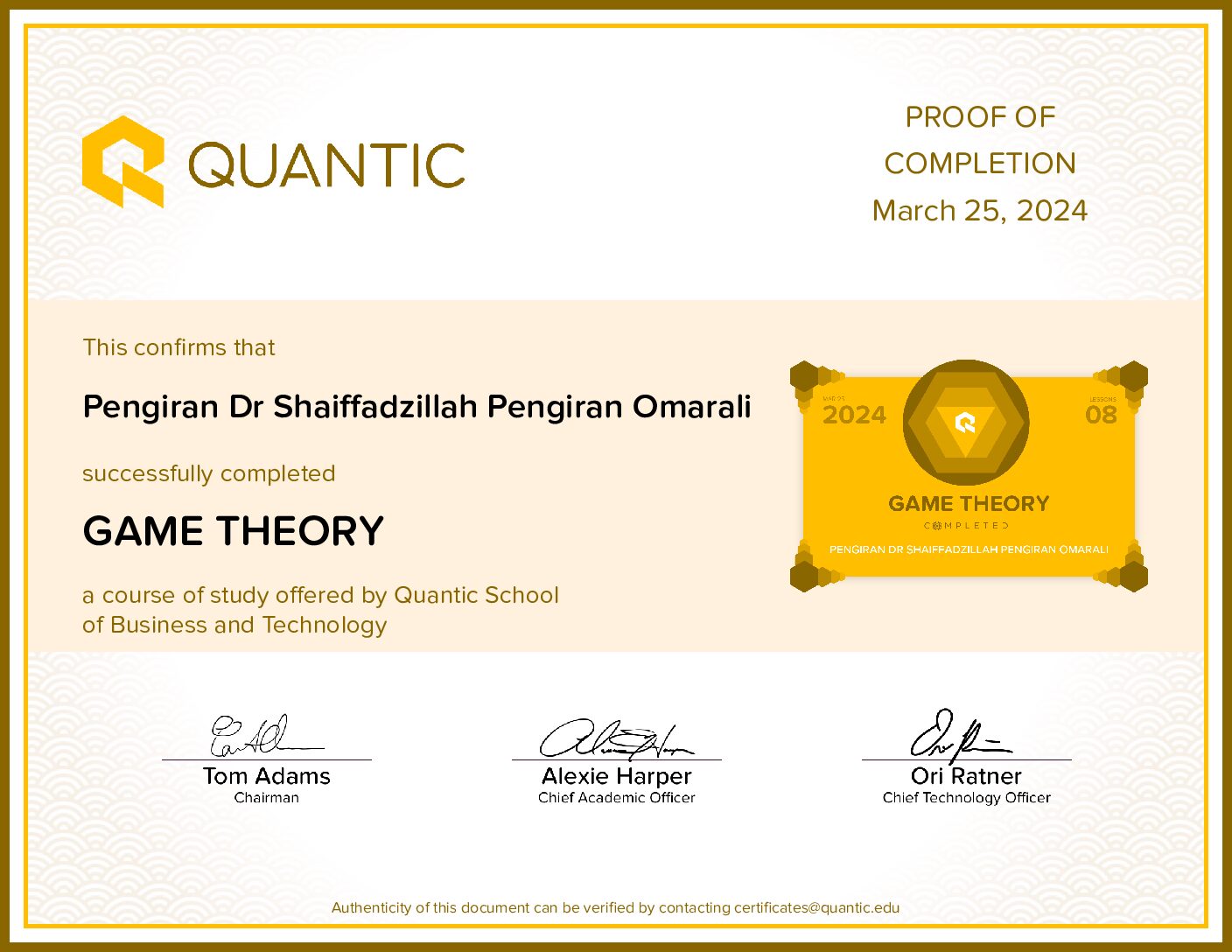
Game Theory
Game theory is the study of mathematical models of strategic interactions among rational agents. It finds applications in various fields of social science, including economics, logic, systems science, and computer science. Here are some key points about game theory:
- Strategic Interactions: Game theory focuses on situations where participants’ decisions are interdependent. Each player considers the other players’ possible decisions (or strategies) when formulating their own strategy
- Applications:
- Economics: Game theory is extensively used in economics to analyze decision-making, market behavior, and competition.
- Logic: It provides tools for reasoning about strategic choices and outcomes.
- Computer Science: Game theory informs algorithms, optimization, and multi-agent systems.
- Historical Origins:
- John von Neumann introduced the concept of mixed-strategy equilibria in two-person zero-sum games. His work laid the foundation for modern game theory.
- The book “Theory of Games and Economic Behavior” (1944), co-authored by von Neumann and Oskar Morgenstern, considered cooperative games involving multiple players and introduced the concept of expected utility for decision-making under uncertainty


